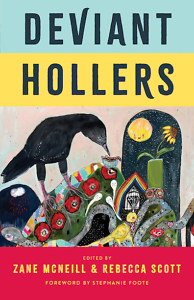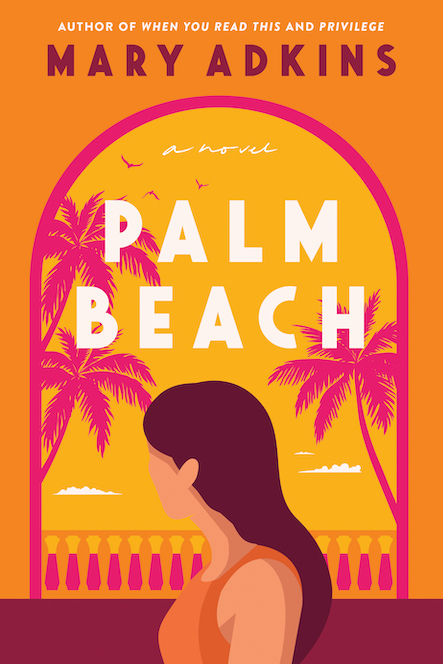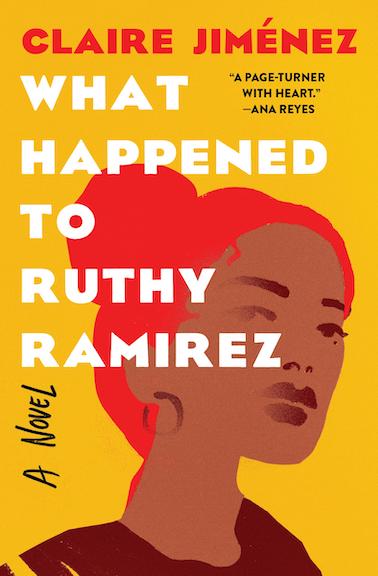Both in and out of Place
Deviant Hollers pushes against reductive stereotypes about Appalachia’s future
In their introduction to Deviant Hollers: Queering Appalachian Ecologies for a Sustainable Future, editors Rebecca Scott and Zane McNeill argue that efforts to wrest “the Appalachian narrative” from harmful, reductive stereotypes have not gone far enough. They insist that a “complex understanding” of Appalachia “requires an intersectional examination not just of its marginalization but also its participation in structures of domination.”

Pushing against narratives of the region that include only white, patriarchal, and heteronormative characterizations, the authors collected in Deviant Hollers hope to open up new spaces of possibility for Appalachia’s future.
Literary scholar Stephanie Foote writes in her foreword to the book that because “it is still all too easy to think of Appalachia as univocal, uniform, and in need of salvation from itself,” a new approach is necessary to break through persistent assumptions.
To this end, the essays in Deviant Hollers address many of the problems facing the region through the lens of queer theory. Foote defines the book’s approach this way: “[Queering] Appalachia — challenging the key terms of how subjects, agency, and desire are related to one another — promises that the way we imagine relationships to power can be changed and remade because every iteration of ‘things as they are’ is deeply historical and thus available for revision.”
In the book’s opening essay, “Re-presenting the Narrative: Pursuing Stories amid Addiction,” filmmaker and professor Tijah Bumgarner describes how the narratives surrounding the region’s opioid crisis have not effectively addressed complex issues, including historical inequities between white and nonwhite addicts and links between the exploitation of the land itself and exploitation of its human inhabitants.

“While a restructuring of narratives cannot undo the historical damage to the environment and cultural damage to the people in the region,” Bumgarner argues, “it can open a space for agency for those who claim an Appalachian identity and yet have historically been left out of the narratives that create this place.” This crucial space of agency lies at the heart of many of arguments made by the essays contained in Deviant Hollers.
Two essays — “Intoxicated Subjects: Queer Bodies and Ecologies in ‘Trumpalachia,’” co-authored by Zane McNeill and Rebecca-Eli M. Long, and “Unsilencing Indigeneity: Appalachian Studies, Appalachian Ecologies, and the Continuation of Settler Colonialism,” written by Jessica Cory — give indigenous perspectives of the region the central importance they deserve.
“It’s Grandpa’s Land: Property, Heteropatriarchy, and Environmental Disasters,” written by editor Rebecca Scott, Kandice Grossman, and Aaron Padgett, addresses the subject of environmental activism in light of “the discourse of white inheritance and property,” challenging “how settler colonialism limits the range of the possible for environmental politics.”
Maxwell Cloe’s memorable essay “I Fixed Up the Trees to Give Them Some New Life: Queer Desire, Affect, and Ecology in the work of LGBTQUIA+ Appalachian Arts” explores queer perspectives from Appalachian artists whose nature-related work offers deep challenges against reductive assumptions. From them, Cloe argues, we learn “that a crucial aspect of reconsidering our relationships to queer Appalachian natureculture is not just engaging with the plants, animals, and minerals around us but also our language, signifiers, and structures of colonial power and ownership.”
 Gabe Schwartzman, who teaches geography and sustainability at the University of Tennessee, offers an insightful discussion in “Masculinities in the Decline of Coal: Queer Futures in the Appalachian Coalfields.” By examining the narratives of cultural politics that surround the region’s inevitable transition away from coal as a viable economic pillar, Schwartzman shows how the nostalgia-driven insistence on valuing coal mining as “real men’s work” stifles efforts to create transitions into viable economic futures for the region.
Gabe Schwartzman, who teaches geography and sustainability at the University of Tennessee, offers an insightful discussion in “Masculinities in the Decline of Coal: Queer Futures in the Appalachian Coalfields.” By examining the narratives of cultural politics that surround the region’s inevitable transition away from coal as a viable economic pillar, Schwartzman shows how the nostalgia-driven insistence on valuing coal mining as “real men’s work” stifles efforts to create transitions into viable economic futures for the region.
Schwartzman argues for the value of “rural queer networks [that] operate in Appalachia” and their potential role in re-envisioning economic possibilities. Describing the role of rural queer communities, he writes that “the position of being both in and out of place enables a location from which to imagine and create alternative futures for the region.”
Throughout the collection, the essays chosen by McNeill and Scott foreground the unique opportunities of being “both in and out of place.” As Foote argues regarding these “queered” perspectives, Appalachia “has always held within itself alternate ways of knowing its relation to power. We just have to listen.”
With its candor and nuance, Deviant Hollers makes a valuable addition to a growing body of literature that insists upon a thorough course correction to reductive regional stereotypes of Appalachia.

Emily Choate is the fiction editor of Peauxdunque Review and holds an M.F.A. from Sarah Lawrence College. Her fiction and essays have appeared in Mississippi Review, storySouth, Shenandoah, The Florida Review, Rappahannock Review, Atticus Review, Tupelo Quarterly, and elsewhere. She lives near Nashville, where she’s working on a novel.


